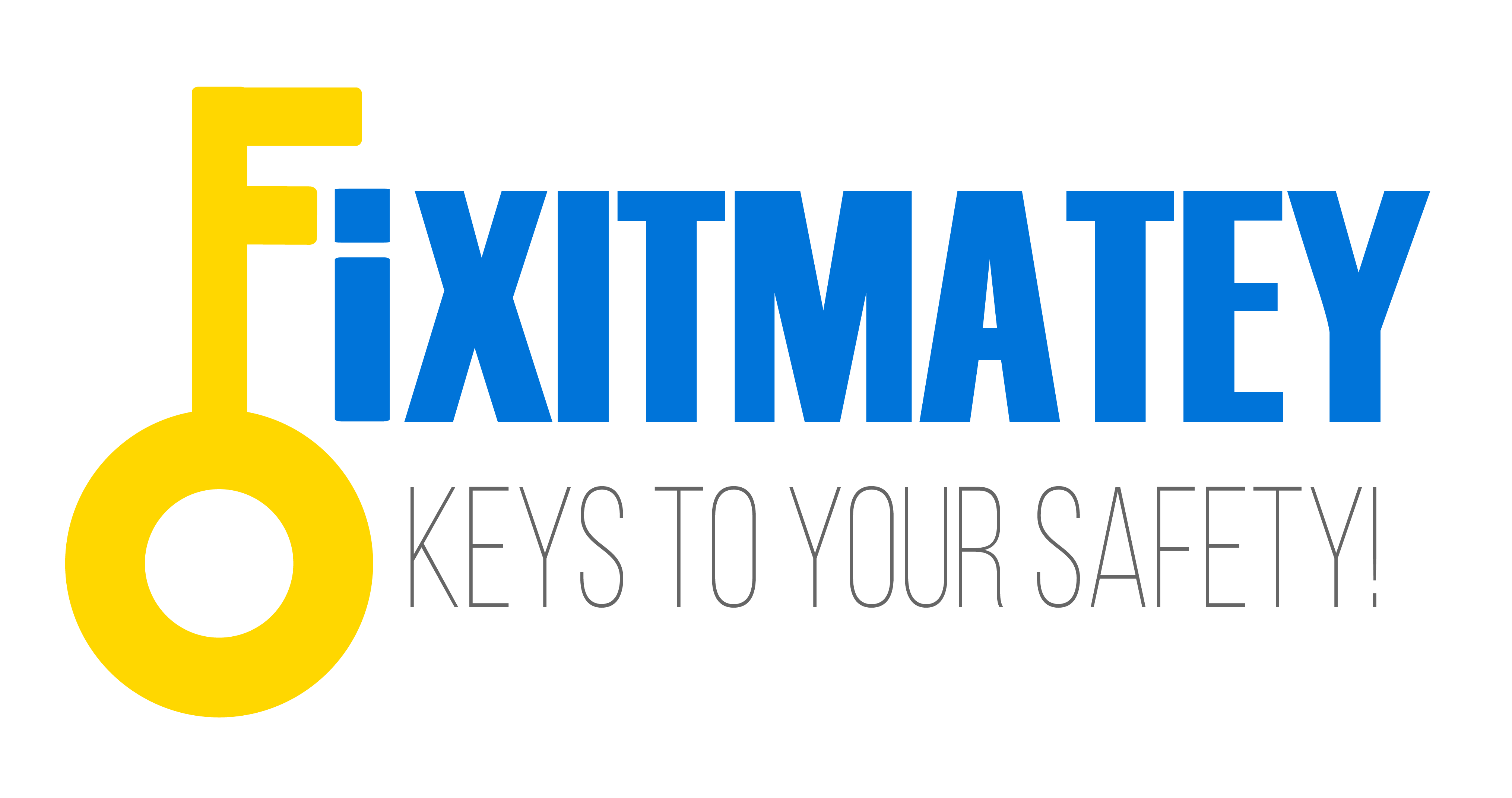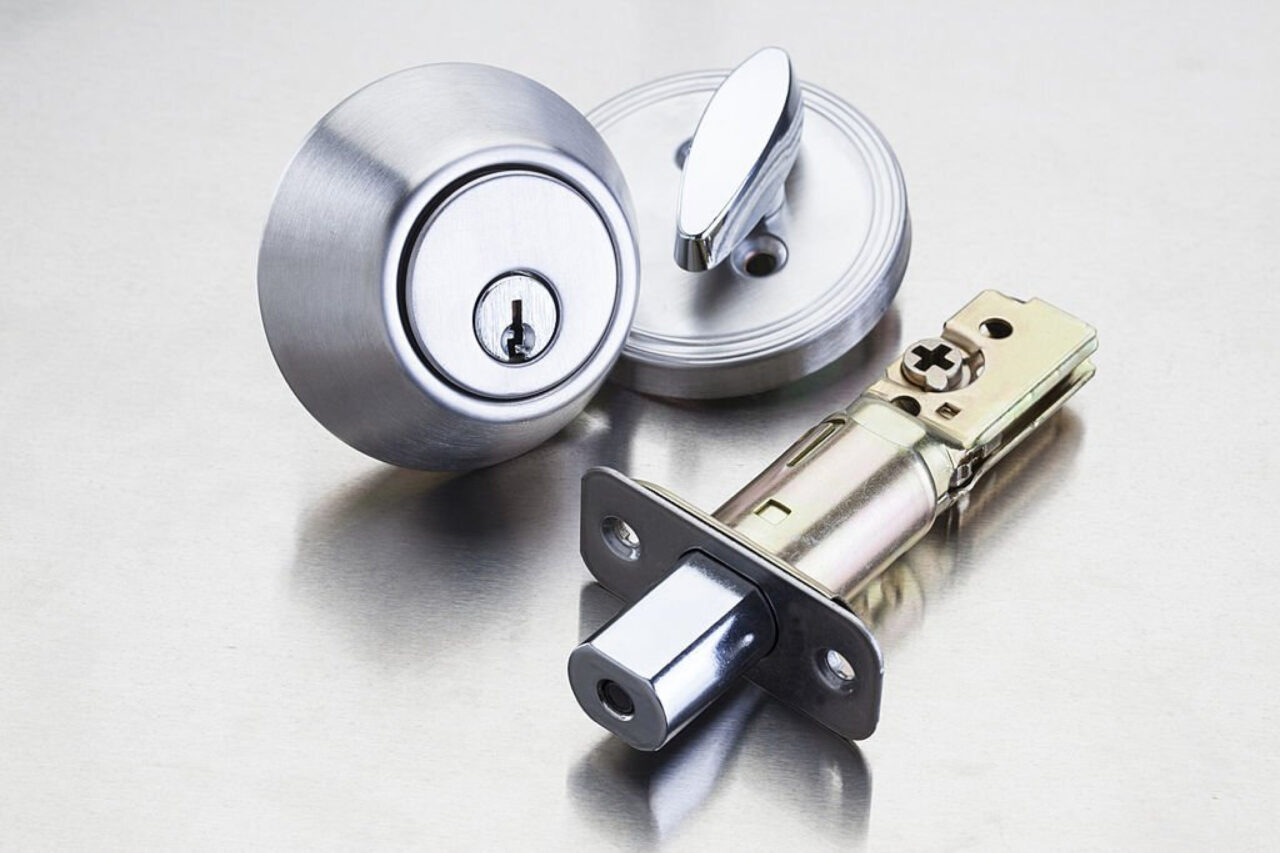Our article will assist you in determining the type of door locks installed in your home. You should know what door locks are on your front and rear doors. Most comparison websites or providers will inquire about the sort of door locks installed on your front and outside doors when you apply for home insurance. Learn more about each type of door lock, including its benefits and drawbacks, below.
Types of Door Locks for Homes
Here are the three basic types of house locks so you can know if you have a deadlatch, mortice deadlock, or multipoint locking system. A five-lever mortice deadlock, which appears to confound many people, is the first lock we’ll examine.
Lever Mortice Deadlock
A five-lever mortise deadlock, frequently installed on wooden doors and can be secured from the inside and outside with a key, is installed inside the door rather than on the surface. A Nightlatch is typically installed as additional security on any five-lever mortice deadlock that is NOT BS3621 certified. We advise that any night latch installed as a second lock be British Standard Approved.
How secure is a 5 Lever Mortice lock?
Although there often won’t be any rigid plates to guard against drilling, a regular five-lever mortice deadlock won’t be as secure as one that complies with BS3621.
How to Identify a 5-Lever Mortice Deadlock
The first thing you should know is that uPVC and composite doors DO NOT have a five-lever mortice deadlock; instead, search for the following:
- 1. You will have a wooden or timber door, for starters.
- 2. Use a key to unlock the lock. A key will work on both sides of the lock.
- 3. Lock Installed in Door Material – The lock is set into the door’s leading edge, not its surface.
- 4. “5 LEVER” should be stamped on the lock’s faceplate to indicate five levers.
What is the difference between a three-lever and a lever lock?
A three-lever lock is less secure than a five-lever lock because it has fewer levers, which raises the possibility of crucial duplication. A three-lever lock will also not be BS3621-approved due to the lock’s low level of security.
What is the difference between a mortice deadlock and a sash lock?
A mortice sash lock features a latch and bolt to open and close the lock, unlike a mortice deadlock, which has neither. A mortice deadlock, however, lacks a latch that allows you to unlock the lock.
What is the best 5 Lever Mortice lock?
British Standard BS-3621 has been kitemarked the best and safest five-mortise lock. A mortice lock that is British Standard-certified is guaranteed to have been tested against drilling and other standard burglary methods.
How much does a 5-Lever Mortice Deadlock Cost?
A five-lever mortice deadlock costs as little as £20; the cost varies depending on the type of mortice lock installed and the door lock company. A five-lever mortice deadlock will cost a little more than a three-lever lock.
5 Lever Mortice Deadlock Conforming to BS3621
A five-lever mortise deadlock that complies with BS3621 will have the British Standard Kitemark etched on the lock’s faceplate and function like a conventional deadlock.
Difference Compared to a Standard 5 Lever Mortice Deadlock
More Secure – An approved five-lever mortice deadlock is more secure and has been tested against typical theft techniques, as opposed to a regular five-lever mortice deadlock.
How to tell a 5 Lever Mortice Deadlock conforms to BS3621
Checking for the following indications is the most straightforward approach to determine whether your Mortice Deadlock complies with the BS3621 standard:
Engraved Kitemark On the lock’s faceplate, search for the British Standard Kitemark engraving. This well-known sign denotes BS3621 conformity.
Number of Engraved Levers: If you want to know how many levers the lock has, look at the faceplate. This is often indicated to ensure you are aware of the lock’s security measures.
Standard Number Engraved: The standard Number, such as BS3621:2017, shall be prominently displayed on the lock’s faceplate. This attests to the lock’s compliance with the BS3621 standard, which is necessary to guarantee the lock’s high caliber and security.
Door Type Commonly Fitted To
BS3621 compliant 5 Lever Mortice Deadlocks are frequently installed in various door types. It frequently appears on:
Front outside doors: This is the most common use since it provides strong security for a property’s main entry.
Auxiliary back doors: Mortice Deadlocks are frequently used on back entries to offer dependable security, much like on front doors.
Inside Doors: These locks are sometimes used on internal doors within a building, although they are less frequent than front and back doors. Their installation on internal doors improves building security.
These locks, which are BS3621-approved and provide security and safety for various door types, are essential for protecting houses and other structures.
2. Multipoint Locking System
A multipoint lock system with a key is installed in the door’s body and locks into the door frame. When the lock is activated, several bolts will lock into the door frame, often with at least three points and occasionally with four or five points.
A euro cylinder lock that the key enters into is used to operate the mechanism.
Types of Doors
Multipoint locks can be found on French and patio door types and UPVC and composite entrance doors. They are usually used on UPVC and composite doors, although they can also be installed on aluminium and wood doors.
Door Type Commonly Fitted To
The following doors have multipoint locks:
- External front door: a common entrance
- External back door: a common entrance
Advantages
There are benefits to using a multipoint lock for your door lock, including More locking points that make it more challenging to force the door.
- Fewer keys are needed for a single property because just one cylinder is needed to lock the entire mechanism and can be keyed like other cylinder locks.
- It is simple to upgrade to a better standard cylinder or change the cylinder.
Multipoint Locks Only have One Lock Cylinder.
Although it is advantageous since you only have one lock cylinder, there are fewer locks on your door than on a traditional wooden door, which may have two or more separate locks.
To prevent picking, drilling, bumping, and snapping, the cylinder must be tested to the SS312 Diamond Approved or TS 007 3-star kitemark level.
Alternatively, you might install 2-star PAS24 handles on a minimum 1-star cylinder.
When used in Multi Occupancy Properties
A thumb turn cylinder must be installed for quick egress in an emergency on premises with several occupants, such as a building of apartments or a house converted into apartments.
A Pro Tip
Remember that your insurance may not cover your damages if your locking system does not lock properly.
Because most individuals do not lock their doors properly, burglars prowl around streets and gardens at night, testing door handles.
-
Rim Automatic Deadlatch with Key-Locking Handle
Type of Front Door Lock & Back Door Lock
Your door is equipped with a rim automatic deadlatch (night latch), and the critical locking cylinder into which you insert the key to unlock the door is positioned outside the door.
Deadlatches are also sometimes referred to as Yale Locks and Night latches. A key put in a rim cylinder may be locked and unlocked from both sides.
IT WILL NOT BE THE ONLY LOCKING SECURELY ON YOUR DOOR.
A night latch is frequently installed next to a mortice lock.
Types Of Doors
Both glass-paneled and wooden/timber doors have deadlatches (also known as night latches).
Door Type Commonly Fitted To
On the following types of doors, a deadlatch (night latch) can be found:
- External Front Door – ubiquitous in homes
- External Back door – ubiquitous in homes
Advantages
Using a deadlatch (night latch) as your door lock has several benefits:
✔ Easy to use
✔ Locks automatically once shutting
Euro Cylinder Lock
Type of Front Door Lock/Back Door Lock & Sometimes Internal Doors
A euro cylinder lock is generally installed for multipoint locking systems on uPVC and composite doors. It is also put on a few mortice deadlocks and sash locks on wooden and aluminium doors.
Door Type Commonly Fitted To
The following door types include euro cylinder locks:
- External front door: a typical feature of dwellings
- External back door: a typical home feature
- Internal doors can be used in offices, schools, and hospitals but are less frequently utilized than internal locks in residences.
Advantages
A euro cylinder door lock has the following benefits: When installed by the correct lock standard, it will help to prevent lock snapping, drilling, lock bumping, or picking. It is simple to use. It is simple to change to a higher standard of security. It can be keyed alike or master keyed, requiring fewer keys to a property.
For more insights and expert tips on locksmith services and security solutions, explore our comprehensive guides on residential locksmith, commercial locksmith, and emergency locksmith services at FixItMatey. Learn more about our mission and team on our About Us page. For any inquiries or assistance, don’t hesitate to reach out via our Contact page. Stay informed and secure with our step-by-step tutorials and professional advice. Visit FixItMatey for all your locksmith needs!
Frequently Asked Questions
What is the best type of front door lock?
The finest front door lock depends on a few variables, including the door type and the type of structure.
Wooden doors typically have TWO locks installed. Thus, they require a different lock than uPVC or composite doors.
Building Type: The escape criteria for a door lock on a flat or apartment (or a home with a single exit) will differ from those for a lock on a domestic house.
For this reason, you should only have a vetted, qualified locksmith choose and install your door locks.
Additionally, we advise having your door lock independently tested by British Standards and the appropriate egress criteria. Click here to read our guide to British Standard Locks.
What brand of door lock is the best?
The brand of lock you select is a matter of personal preference. Still, we advise going with a lock that has been independently tested, indicating that it has met requirements for security and durability.
Do I need two locks on the front door?
Only wooden doors often have two locks.
What is the best lock for a Wooden Door?
A lock that complies with BS3621 requirements is the best for a wooden door; it can be installed as a night latch, mortice deadlock, or mortice sash lock. To get access, a non-tested night latch must be supplemented by a tested lock, creating a situation where two locks are on the door. It should be emphasized that if a non-tested night latch is used alone, the door is not locked correctly; instead, it is only latched, leaving it open to intrusion. Live in an apartment or a flat? The lock should comply with BS 8621 requirements if the door is on a single-exit dwelling (a flat or apartment).

